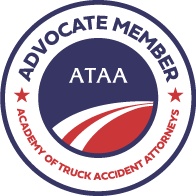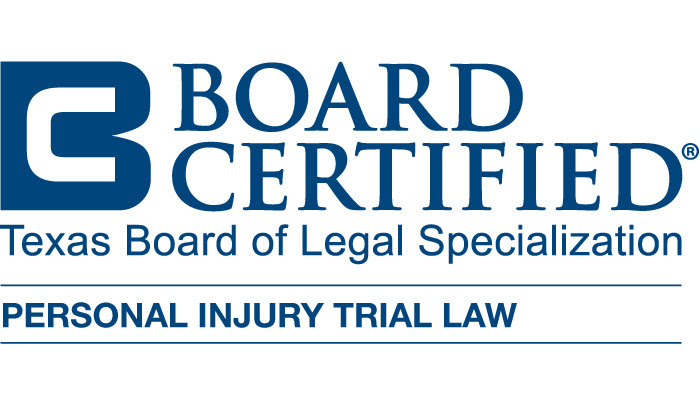Navigating the aftermath of a truck accident can be a complex and overwhelming experience, particularly when it comes to understanding the legal implications involved. One key concept that often arises in these cases is comparative negligence. In Texas, the principle of comparative negligence plays a crucial role in determining the extent of each party’s liability and the potential compensation for the injured parties. Understanding this legal framework is essential for anyone involved in a truck accident to ensure their rights are adequately protected and they receive the compensation they deserve.


The Foundation of Comparative Negligence
Comparative negligence is a legal doctrine used to allocate fault among the parties involved in an accident. Unlike some states that follow a contributory negligence rule, where any fault by the injured party completely bars recovery, Texas adopts a modified comparative negligence rule. Under this system, an injured party can recover damages as long as they are not more than 50% at fault for the accident. If they are found to be 51% or more at fault, they are barred from recovering any compensation.
This modified comparative negligence system is codified in Texas Civil Practice and Remedies Code Section 33.001. The law stipulates that the amount of damages awarded to the plaintiff is reduced by a percentage equal to their degree of fault. For example, if a jury finds that the plaintiff is 30% at fault and the total damages are $100,000, the plaintiff would receive $70,000 after a 30% reduction.
Application in Truck Accidents
Truck accidents are often more complex than typical car accidents due to the sheer size and weight of commercial trucks, the involvement of multiple parties, and the potential for severe injuries and extensive property damage. In these cases, establishing fault can be particularly challenging. Comparative negligence becomes an essential factor in determining how liability is distributed among the parties, which may include the truck driver, the trucking company, manufacturers of truck parts, and even third-party maintenance providers.
To illustrate, consider a scenario where a truck driver fails to check their blind spot and collides with a car. Simultaneously, the driver of the car is found to be speeding. In such a case, both parties may share responsibility for the accident. A thorough investigation would be required to ascertain the degree of fault attributable to each party, factoring in elements such as driver beha
My focus is to give a voice to families who have suffered a wrongful death or a serious injury to a family member caused by an 18-Wheeler, commercial truck, or a drunk driver. Contact us today, we can help you.Helping Injury Victims for Over 25 Years
The Role of Evidence
Establishing comparative negligence in truck accident cases relies heavily on gathering and presenting compelling evidence. This can include police reports, witness statements, surveillance footage, and testimonies. For instance, an accident reconstruction specialist might analyze the scene to determine the sequence of events leading to the collision. Additionally, electronic logging devices (ELDs) installed in commercial trucks can provide critical data on the truck’s speed, braking patterns, and the driver’s hours of service, which are essential in establishing whether the truck driver was fatigued or violated federal regulations.
Medical records also play a pivotal role in documenting the extent of injuries sustained and the potential impact on the victim’s life. These records can be used to substantiate claims for medical expenses, lost wages, and pain and suffering. Ensuring that all relevant evidence is meticulously collected and preserved is vital for building a strong case and accurately determining each party’s degree of fault.
Legal Representation and Strategy
Given the intricacies of comparative negligence and the high stakes involved in truck accident cases, obtaining legal representation is crucial. An attorney well-versed in Texas truck accident law can navigate the complex legal landscape, advocate on behalf of the injured party, and negotiate with insurance companies and other parties involved. The attorney’s role includes conducting a comprehensive investigation, identifying all potentially liable parties, and formulating a strategic approach to maximize the client’s compensation.
Negotiation experience is particularly important in truck accident cases, as insurance companies often attempt to minimize payouts by shifting a significant portion of the blame onto the injured party. A seasoned attorney can counter these tactics by presenting robust evidence and effectively arguing the client’s case. Additionally, if a fair settlement cannot be reached through negotiations, the attorney must be prepared to take the case to trial and present a compelling argument before a judge or jury.
Related Videos
Choosing a Personal Injury Attorney
Types of Compensation in a Truck Accident Claim
Types of Compensation
In Texas truck accident cases, damages can include medical expenses, lost income, property damage, and non-economic damages such as pain and suffering and emotional distress. The economic impact of a truck accident can be devastating, with victims facing significant medical bills, rehabilitation costs, and a potential loss of earning capacity. Non-economic damages, while more challenging to quantify, are equally important as they address the profound emotional and psychological impact of the accident on the victim’s life.
The Importance of Timely Action
Acting promptly after a truck accident is critical for several reasons. Texas imposes a statute of limitations on personal injury claims, generally giving victims two years from the date of the accident to file a lawsuit. Failure to file within this timeframe can result in the loss of the right to seek compensation. Additionally, evidence can deteriorate or be lost over time, and witness memories can fade. Prompt action ensures that evidence is preserved, witnesses can be interviewed while their recollections are fresh, and the case can be built on a solid foundation.
Moreover, trucking companies and their insurers often conduct their own investigations immediately following an accident. They are well-equipped with resources and legal teams to protect their interests. By securing legal representation early, injured parties can level the playing field and ensure their rights are safeguarded from the outset.
Seeking Justice and Fair Compensation
Truck accidents can have life-altering consequences, leaving victims to grapple with physical injuries, emotional trauma, and financial burdens. Understanding comparative negligence is a vital step in seeking justice and fair compensation. It requires a thorough investigation, meticulous collection of evidence, and a strategic legal approach to establish fault and accurately determine the damages owed.
At Willumsen Law Firm, P.C., we understand the complexities involved in truck accident cases and the critical role that comparative negligence plays in determining outcomes. Our dedicated legal team is committed to providing compassionate and effective representation to help victims navigate this challenging process. We work tirelessly to ensure that our clients receive the compensation they deserve and that their rights are vigorously protected.
If you or a loved one has been injured in a truck accident, it is essential to understand your rights and the legal options available to you. The principle of comparative negligence can significantly impact your ability to recover compensation and the amount you may receive.
Don’t navigate this complex legal landscape alone — contact Willumsen Law Firm, P.C. today for a free consultation. Our experienced team is here to help you understand your case, gather the necessary evidence, and fight for the justice and compensation you deserve. Take the first step towards recovery and let us advocate for you. Reach out to us now to discuss your case and explore how we can assist you in this challenging time.



